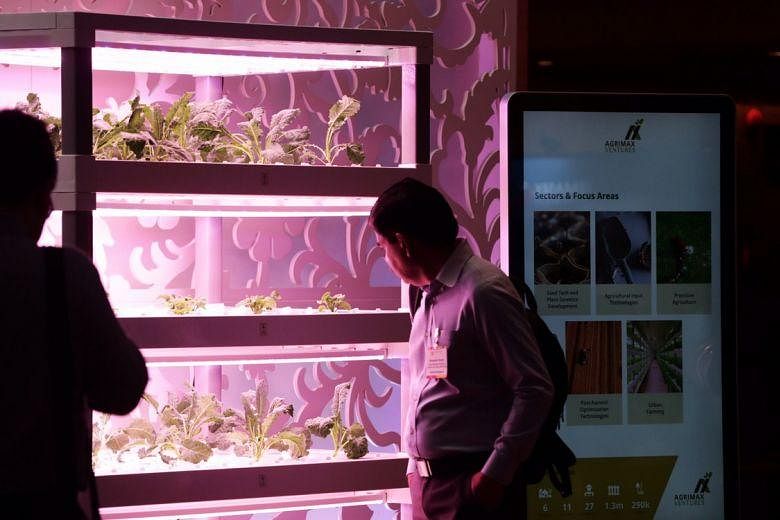A new research institute will not only help Singapore grow more of its own food, but also bring new dishes to people's tables.
The institute could attract major international investments to Singapore, which hopes to become a major player in the food and nutrition space.
For this, the Republic hopes to ride on its strength in technology, and the Singapore Institute of Food and Biotechnology Innovation is tipped to play a key role.
It is being set up by the Agency for Science, Technology and Research (A*Star) by the middle of next year and will look into areas such as alternative proteins to replace meats, and even the way food is grown, tastes and is absorbed by the body.
One of the projects it will house involves local start-up Eatobe, which is seeking to process and transform grains, nuts and seeds in a way that makes it easier for the body to digest and absorb the nutrients.
The new institute is also part of Singapore's efforts to produce 30 per cent of its nutritional needs by 2030 - or what it terms its "30 by 30" target, said Dr Koh Poh Koon, Senior Minister of State for Trade and Industry, at the launch of the Asia-Pacific Agri-Food Innovation Week at Grand Hyatt Singapore yesterday.
Singapore currently imports 90 per cent of its food, which makes it vulnerable in the event that climate change hits global food production.
Highlighting the opportunities that technology has created for the sector, Deputy Prime Minister Heng Swee Keat said at a related event that plant-based Impossible Burgers use 87 per cent less water and produce 90 per cent less greenhouse emissions in their making than their beef counterparts.
Now, local start-up Shiok Meats plans to develop laboratory-grown lobster and crab meat, he added. "With more R&D, this could take our chilli crabs to the next level," he quipped at the launch of the Asia Food Challenge Report.
Meanwhile, A*Star researchers are studying the use of micro-organisms to sustainably produce flavour and fragrance compounds - such as one that gives tomatoes their red colour and another that smells like cucumbers.
"So besides farm to table, we are also getting food from lab to table," said Mr Heng.
He also pointed to the potential growth of the agri-food industry in Asia, which is projected to double its spending on food over the next decade - from US$4 trillion (S$5 trillion) now to US$8 trillion by 2030.
Companies have realised this and are investing significantly in the field. "In 2018 alone, agri-food technology start-ups raised nearly US$17 billion globally, a 40 per cent increase over the previous year," said Mr Heng.
Dr Koh also touched on the opportunities for business. "You may ask though, why is a small country like Singapore interested in agri-food technology?
"We are interested not only because it can provide Singapore and other urban centres in Asia an alternative way to feed themselves, but also because it is a natural addition to Singapore's established industries... (like) food manufacturing."
Dr Benjamin Seet, assistant chief executive of the Biomedical Research Council at A*Star, said the new institute would not only attract international investments to Singapore, but also make local companies more productive through innovation.
Mr Heng also pointed to the global benefits of such research.
Globally, around 800 million people live in hunger and Asia alone has 300 million smallholder farms. By improving crop yield and productivity, "we can improve the lives of these farmers and their families and bring more food to consumers", he said.


